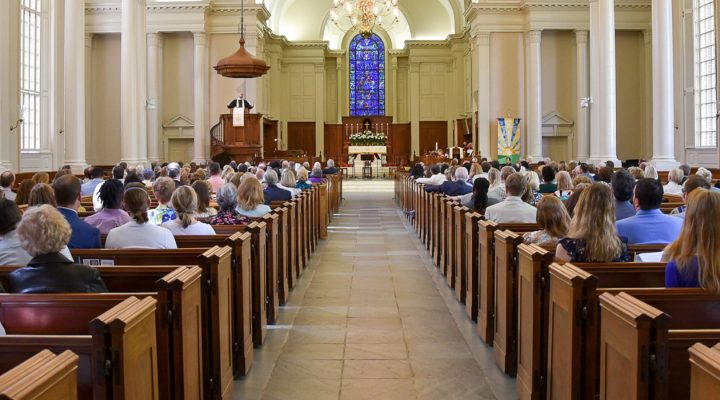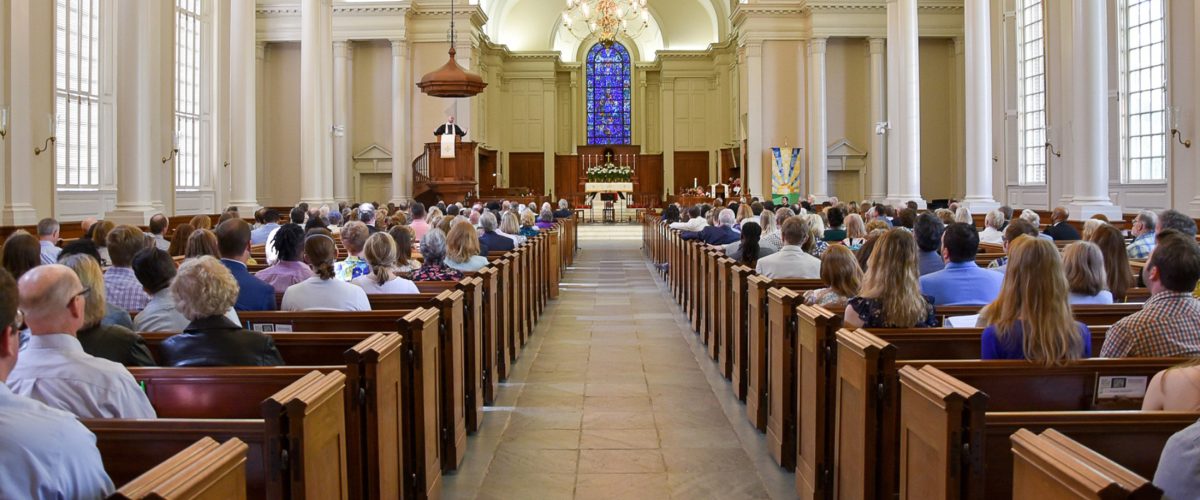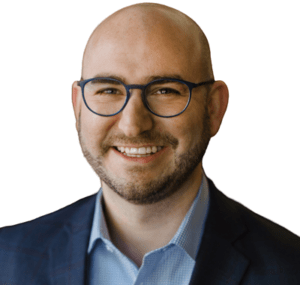Two weeks after he preached a sermon calling for action to oppose the worst impulses of the incoming Trump administration, a North Carolina pastor was forced out of his prominent pulpit.
Ben Boswell, who had been senior minister at Myers Park Baptist Church in Charlotte nine years, technically resigned but a church leader acknowledged that resignation was forced by a hastily called vote of the Church Council and then the deacons last Sunday evening.
That was 14 days after Boswell preached a Nov. 10 sermon titled “Where Do We Go from Here?” in which he attempted to guide church members on how to respond constructively to the election of Donald Trump.
Apart from the timing of the two events, no direct link has been made publicly between the sermon and the forced resignation.
However, one Myers Park deacon has gone public with his criticism of the church leaders who forced Boswell out, saying the ouster lacked due process and was in response to the discomfort of some “performatively liberal” members of the church.
“This termination is rooted in the racist idea that there is too much of a focus on ‘racial justice,’” said Tim Emry, a local criminal defense attorney. “They have no plan for how to improve the church, they simply desire to take the church backward and embrace whiteness. Make no mistake, this is about white comfort and an unease with living out the mission of the church.”
“Make no mistake, this is about white comfort and an unease with living out the mission of the church.”
The termination happened quickly and abruptly, according to multiple accounts. On short notice, deacons were called to an emergency Zoom meeting the evening of Nov. 24. The Church Council had been called to a similar meeting earlier that afternoon.
“This was not a thorough process, and it lacked any sense of due process or fundamental fairness,” Emry wrote in a letter to the congregation the next day. “The timing of the action: during a stewardship campaign, right before the Advent season, and four days before Thanksgiving is also particularly poor. Despite whatever deceptive and dishonest message that you get from the board of deacons, the truth is that this was a forced firing.”
By his account, “the serious questions that were asked and concerns raised by those not in support were largely ignored. As is far too often the case in white majority settings, Black voices and those acting in solidarity with Black voices were simply not regarded and brushed past.”
Deacon Chair Marcy McClanahan told the Charlotte Observer Emry’s description of the reasons for Boswell’s departure are inaccurate, but she did not dispute the timing of the decision, even while portraying it as part of a longer-running conversation.
“This transition comes as part of Ben’s personal discernment and our shared commitment to the long-term health and future of MPBC,” she said. “Guided by our faith and dedication to God’s work, I trust that this change will allow us to continue building a sustainable and thriving path forward for our church, honoring our mission of inclusivity, spirituality, justice, and community.”
“This transition comes as part of Ben’s personal discernment and our shared commitment to the long-term health and future of MPBC.”
It is highly unusual for pastors of Baptist churches to resign abruptly — and particularly amid the holiday season — unless forced to resign or fired.
According to Emery’s insider account, Boswell’s critics cited three things against him: “that church attendance has been declining, that church giving has been declining, and that … morale is low.”
Those criticisms could apply to the majority of churches in America.
Boswell has not given any public comment on the situation. However, church members who are angry about his sudden departure have demanded more dialogue with lay leaders this coming Sunday.
Myers Park Baptist Church is an affluent congregation located in an affluent section of Charlotte. Its history is chock full of liberal and progressive trailblazing moments, including ordaining women in 1970, working in racial reconciliation from the church’s inception, and affirming full inclusion of LGBTQ Christians in 2001. The church left the Southern Baptist Convention in 1998 and is aligned today with the Alliance of Baptists and the American Baptist Churches in the USA.
In 2019, the church adopted a “Statement on Racism toward African Americans.”
The church currently is in the process of discerning whether to remove the word “Baptist” from its name.
Boswell became the church’s sixth senior minister in 2015, following a two-year gap since the resignation of his predecessor, Stephen Shoemaker. One of the church’s best-known previous pastors was Carlyle Marney.
In his Nov. 10 sermon the Sunday after the presidential election, Boswell said he and many of those in the congregation “need time now to grieve, to cover our mirrors, to render our garments, to sit in sack cloth and ashes, to scream, to weep, to mourn, to howl at the moon if necessary. But as we grieve, we must remember Paul’s words from one Thessalonians 4. Yes, we are people who grieve, but we do not grieve as people who have no hope.”
He said there is only one democratic election recorded in all of Scripture. “It was hosted by Pontius Pilate in Jerusalem where he gave the crowd a choice of who they would elect to pardon — Jesus of Nazareth or Jesus Barabbas. It was a choice between two versions of the Jewish religion, two viewpoints of the empire, two valleys by which to travel, two visions of salvation and the future. But fundamentally, if you look carefully, it was the choice between a healer from Galilee and an extremist who led an insurrection at the Capitol where people were murdered. That’s the choice, and the crowd chose Barabbas.”
“We can advocate for those who are being crucified by the empire.”
That’s a choice “we are now very familiar with,” he continued. “This week was not the first time the crowd has made a perilous and misguided choice. It’s why Jesus’ last words from the Cross were, ‘Father, forgive them for they know not what they do.’ The founding story of our faith told us that when crowds of people are given a choice, they will often wittingly or unwittingly choose violence and make a choice that leads to crucifixion and that’s why we grieve.
“One of the reasons we grieve today is because we’ve been told quite clearly that the election of Donald Trump will lead to the crucifixion of people we love. It will lead to the crucifixion of immigrant families, women in need of reproductive rights, transgender and nonbinary people, sick people in need of health care, government workers clinging to a job, poor people in need of resources. And so we grieve today with our entire body for those who we love. But our faith also teaches us something else. It teaches us that every crucifixion needs a witness.”
He continued: “Even when all hope seems lost, we can stand and keep, watch and remain vigilant like Mary Magdalene and the other women as witnesses. We can witness to the truth of what is happening. We can speak truth to power. We can say this is wrong. We can advocate for those who are being crucified by the empire.”
Related articles:
True confession: I’m addicted to being white | Opinion by Benjamin Boswell



